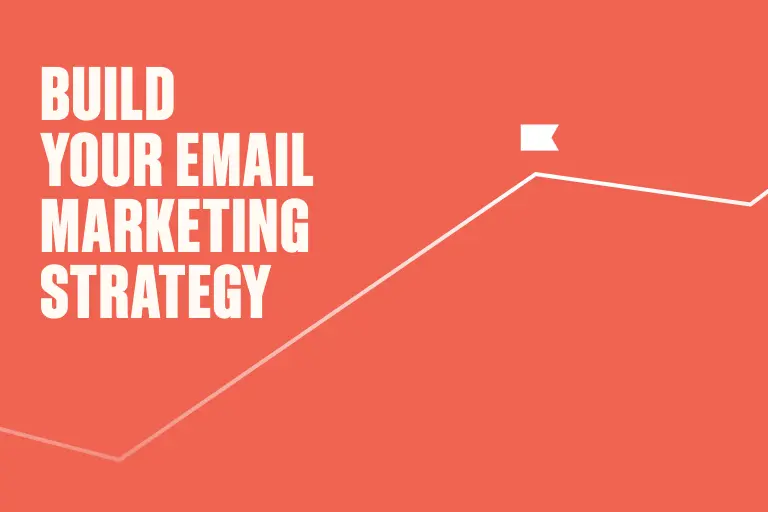4 impactful email marketing plug-ins for your Shopify store
Shopify merchants are no different from any other ecommerce merchants in that they’re retailers that sell online, says Jake Cohen, VP at Klaviyo.
But often, that’s where the similarities end.
“Different merchants, based on how long they’ve been in business and how much they’ve grown, have different challenges,” Cohen points out:
- Beginners: When you’re first starting, how do you raise brand awareness?
- Small businesses: When you have your first hundred customers, how do you keep business consistent and predictable?
- Midsize businesses: When you have a million customers, how do you keep your costs of service down and get more people buying for the first time—then again and again?
- Enterprise: When you have 10M customers, how do you expand into new countries?
“What’s special about Shopify is they have an appreciation for the nuances and evolution of those problems, and they’ve built a platform that allows someone to start small and then scale internationally,” Cohen explains.
Building out a strong Shopify tech stack, then, looks different for every ecommerce merchant. “By merchant size and category, there are different problems to solve, and within those problem sets, there are some apps and plug-ins that are better than others,” Cohen says.
The tech solutions in the Shopify App Store that are worthiest of your attention—and your money—aren’t the ones that are “standard,” per se, but rather “the ones every single brand should be using and may or may not be,” Cohen says.
Here are 4 Shopify email marketing apps Cohen believes “unilaterally increase your likelihood of being successful”:
- Marketing automation plug-ins for Shopify
- Price testing plug-ins for Shopify
- Order tracking plug-ins for Shopify
- Customer data plug-ins for Shopify
1. Marketing automation plug-ins for Shopify
The best digital marketing platforms combine email and SMS in one platform and use email automation—technology that manages, schedules, and executes marketing campaigns and processes, automatically, by applying if/then logic to prospect and customer behavior.
In order to function, this kind of tech relies on downstream activities that are triggered by actions taken within an online store. For that reason, the data sync between the platform and Shopify needs to be instantaneous.
The challenge, Cohen explains, “is that you need that data to move quickly, so you need an integration and a platform that can keep up.”
Klaviyo, an official Shopify strategic partner, has built a Shopify integration that rises above the competition in 3 key ways, Cohen says:
- Speed: Klaviyo’s Shopify integration uses a webhooks-based hydration process that makes it “faster and richer than anyone else,” Cohen believes.
- Data volume: “Klaviyo has built a flexible system that allows us to store a ton of data,” Cohen explains. “Because we can store all of that stuff, we can ask for more stuff. And because we can ask for more stuff, we can unlock more use cases—more nuanced segmentation, more specific analytics, more custom reports to give your store exactly what it wants, instead of just the standard stuff.”
- Stability: Klaviyo employs “dozens of engineers,” Cohen says, “who focus expressly on making sure everything works smoothly all the time.”
“At Klaviyo, we have invested and continue to invest a ton of energy in super rich, fast integrations,” Cohen adds. “To our customers, it just works. To us, it’s a huge part of our core infrastructure and our R&D investment.”
So what does all of this mean for marketing your Shopify store’s email marketing strategy? “The way that manifests in practice is that when you build a segment, everything’s there. When you click on an event, everything’s there. When you run a report, everything’s there,” Cohen explains.
“As you move between the two systems to explore different use cases, you see the same information,” Cohen adds. “There’s no uncertainty. There’s no discrepancy. There’s consistency, so you can wonder less and do more.”
There’s no uncertainty. There’s no discrepancy. There’s consistency, so you can wonder less and do more.
In other words: “You can have confidence that reliable data lives in the places you need it,” Cohen emphasizes. “I cannot overstate the importance of that.”
Equipped with Klaviyo’s email marketing tools, Shopify merchants can:
- Use the drag-and-drop editor to create email marketing campaigns, SMS marketing messages, and on-site sign-up forms, including email pop-ups and fly-outs.
- Build marketing messages from scratch using customizable templates, or choose from a wide selection of pre-built SMS, form, and email templates.
- Trigger a variety of high-impact, real-time automated emails, including:
- Abandoned cart emails
- Welcome emails
- Transactional emails
- Win-back emails
- Price drop notifications
- Post-purchase follow-ups, such as upsell emails or new product recommendations
- Segment their email list and personalize communications to email subscribers based on factors like:
- Opt-in preferences (email vs. SMS)
- Purchase history
- Browse history
- Location
- Customer engagement
- Predicted lifetime value
- Use advanced A/B testing functionality to test email subject lines, CTAs, content, images, and more.
- Easily track and optimize key performance metrics like open rates, click-through rates, and conversion rates.
2. Price testing plug-ins for Shopify
With a pricing testing plug-in like Intelligems, which Cohen calls “brilliant,” Shopify merchants can test A/B test product prices, shipping rates, and bundle/volume discounts to increase average order value and margins—then use the tool’s robust analytics to understand the impacts of these tests on conversion, revenue, and margin.
In a nutshell, “Intelligems helps you improve your profit margin,” Cohen says—and “margin is one of the least understood, least focused on, and most important things for any business, but especially a DTC business where you have to spend so much money on acquisition.”
Say you’re eyeing a competitor’s prices and wondering if you need to adjust yours accordingly. What would happen if you raised your prices by 5%? Lowered them by 10%? What if you created a bundle or increased your free shipping threshold? Would it affect your profit margin and overall cash flow?
Margin is one of the least understood, least focused on, and most important things for any business, but especially a DTC business where you have to spend so much money on acquisition.
If you wanted to run that experiment yourself, “you’d have to determine the different permutations, you’d have to set up the store to do it, you’d have to tag all the users to make sure you don’t promote an incorrect price later and then wind up with a bunch of support tickets, you’d have to honor that price and process it, you’d have to get it printed on the shipping label when it goes out, and if they return it, you’d have to make sure you refund the right amount.”
“Many brands ask. Few test,” Cohen points out—largely because, without a platform to help, “it’s complicated, to say the least. That’s why people don’t do it—because it’s really, really hard.”
Intelligems, however, “gives you the ability to set up that experiment, and they’ll automatically run it for you on your website,” Cohen says.
Imagine if you could squeeze 7% more out of your sales figures—at the same cost. “If you’re doing $2M a year and you get 7% more, that is literally a person’s salary for a year,” Cohen points out. “That’s pretty powerful.”
3. Order tracking plug-ins for Shopify
Cohen is also a big fan of order tracking plug-ins like Wonderment, which Shopify merchants can use to quickly find stalled shipments and reveal patterns with their fulfillment and carriers.
Because Wonderment’s integrations with the various providers in the shipping and fulfillment space are so sophisticated, “they can get more granular shipping and update information about every different order and where it’s at,” Cohen explains.
That means “you can more proactively send communications to your customers about where things are happening and where they’re stuck,” he says. And that may sound simple, but Cohen believes it’s “actually very valuable.”
That’s because, for most ecommerce businesses, a large portion of customer support tickets are “Where’s my order?” tickets.
“The merchant usually doesn’t know, or they do know, but the answer is that UPS has it. And that’s not a satisfactory answer for the customer,” Cohen says. “So even though it’s the carrier’s problem, it becomes the brand’s problem.”
With a tool like Wonderment, Cohen says, “you can proactively say, ‘Hey, guess what—we just found out you’re delayed 2 days. We’re really sorry, but it should be there soon, and we’ll let you know if we hear anything different.’ And most consumers are like, ‘No problem. I don’t need it that bad—I just want to know when it’s going to get here.’”
“Wonderment automates that,” Cohen adds. “They make it really easy, and they do a really good job.”
4. Customer data plug-ins for Shopify
In a post-iOS 14.5 world, where third-party advertising is less effective and more expensive, it’s getting harder and harder for ecommerce merchants to measure marketing performance and attribution.
Customer data plug-ins like Blotout help Shopify merchants drive more sales in the post-cookies world by restoring customer identity.
Blotout promises:
- Lifetime customer IDs that are always accurate and never blocked
- A no-code solution that takes minutes to set up and immediately gets to work
- Pre-built integrations that send marketing signals to all your key growth channels (like Klaviyo and Facebook)
- The ability to expand audiences and segments on Meta, Klaviyo, and other platforms
- A first-party data relationship that protects customer privacy and maintains compliance, even across various regions like the EU and US
In a nutshell, “Blotout allows you to broadcast events on your website to any downstream provider, like Klaviyo, without using client-side cookies,” Cohen explains. “You can use that information for things like targeting, retargeting, personalization, and flow triggering, instead of building tons of custom integrations or adding tons of custom code on your website.”
Shopify email marketing FAQs
What are the best practices for running an email marketing campaign for your Shopify store?
Some of the best practices include:
– Personalizing promotional emails with recipient names and relevant content.
– Sending emails at optimal times for your audience.
– A/B testing subject lines, visuals, and content to optimize performance.
– Ensuring emails are mobile-responsive.
– Complying with GDPR and CAN-SPAM regulations.
– Cleaning your email list and customer segments regularly to remove inactive or invalid contacts.
What features do Shopify email apps offer?
Shopify email apps offer a range of features, including:
1. Pre-designed email templates
2. Subscriber list segmentation and targeting
3. Automated workflows
4. Analytics and reporting
5. Integration with your Shopify customer data
6. A/B testing for subject lines and content
7. Email personalization options
8. Social media integration
9. Compliance with email marketing regulations
How to improve deliverability for Shopify emails?
To enhance email deliverability for your Shopify ecommerce store, start by choosing the best email marketing service and authenticating your domain. Maintain a clean email list by regularly removing invalid addresses and segmenting your list to send targeted content. We also recommend that you:
– Craft engaging, relevant content
– Avoid spam triggers in subject lines and content
– Monitor engagement metrics
– Provide clear unsubscribe options
– Avoid using purchased lists
– Monitor sender reputation
– Comply with regulations
– Test emails before sending



